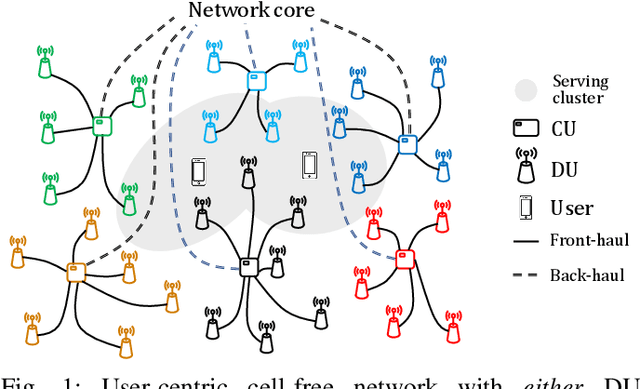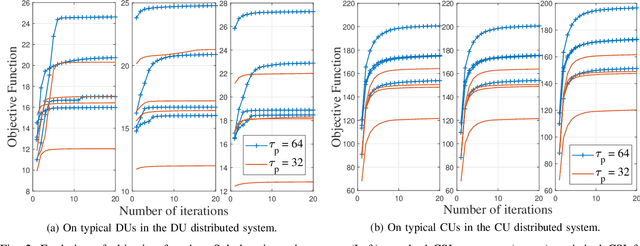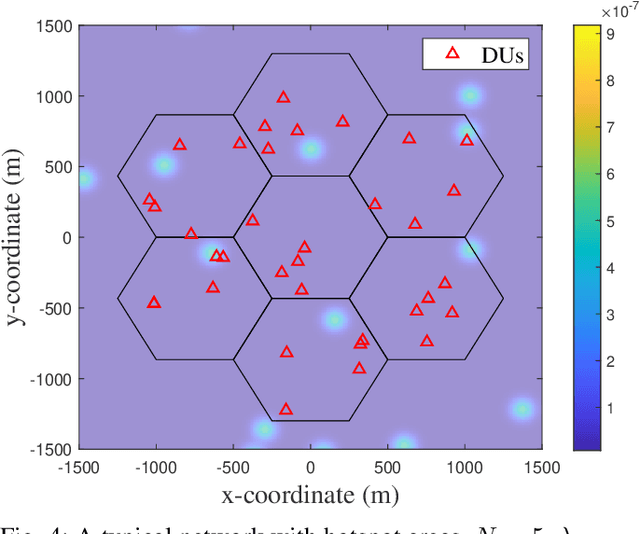Distributed Resource Allocation Optimization for User-Centric Cell-Free MIMO Networks
Paper and Code
Oct 15, 2021



We develop two distributed downlink resource allocation algorithms for user-centric, cell-free, spatially-distributed, multiple-input multiple-output (MIMO) networks. In such networks, each user is served by a subset of nearby transmitters that we call distributed units or DUs. The operation of the DUs in a region is controlled by a central unit (CU). Our first scheme is implemented at the DUs, while the second is implemented at the CUs controlling these DUs. We define a hybrid quality of service metric that enables distributed optimization of system resources in a proportional fair manner. Specifically, each of our algorithms performs user scheduling, beamforming, and power control while accounting for channel estimation errors. Importantly, our algorithm does not require information exchange amongst DUs (CUs) for the DU-distributed (CU-distributed) system, while also smoothly converging. Our results show that our CU-distributed system provides 1.3- to 1.8-fold network throughput compared to the DU-distributed system, with minor increases in complexity and front-haul load - and substantial gains over benchmark schemes like local zero-forcing. We also analyze the trade-offs provided by the CU-distributed system, hence highlighting the significance of deploying multiple CUs in user-centric cell-free networks.
 Add to Chrome
Add to Chrome Add to Firefox
Add to Firefox Add to Edge
Add to Edge